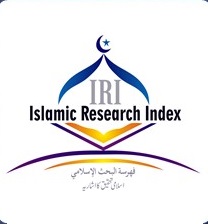Muslim Identity in India and Pakistan
DOI:
https://doi.org/10.58932/MULF0013Keywords:
Culture, Inheritance of Humanity, Khudee, Paradigm of Identity, Media Attacks, Muslim Youth.Abstract
Allama Iqbal (d. 1938) lamented the backwardness of his own contemporary Muslim society. Sir Sayyid Ahmad Khan (d. 1898) had also seen the need for Muslims of his time to become aware of their culture and identity as Muslims. Both Iqbal and Ahmad Khan were aware of the positive as well as the negative influence of the British and the Hindu cultures on their own Muslim cultural identity. They realised that Muslims needed to become aware of their cultural legacy so as to recover an awareness of their own Muslim cultural values. Furthermore, both of these Muslim leaders saw education as the key to maintaining and transmitting the values of Islam to subsequent generations. Without education, the next generation would lose this sacred legacy. This article presents the basic elements of Allama Iqbal’s philosophy of education. The author explains the notion of khudi, which was Iqbal’s term for one’s own self-identity. Iqbal’s philosophy of education gives Muslims a framework by which to transmit their culture and identity to subsequent generations.
References
Akhtar, M. H., (1977). Da'airh Ma'rrif-e-Iqbal. Lahore: Iqbal Academy.
Al-Akhlas. (n.d.).
Al-Baqarah. (n.d.).
Bal-e-Jibraeel. (1935).
Bang-e-Dra. (1924).
Beg, A., (1961). The Poet of the East. Lahore: Khawar Publishing Co-operative Society.
G. S. K., (1971). Iqbal's Educational Philosophy. Lahore: Ashraf Press.
Holland, E. T., (2017). What is Anthropology? London: Pluto Press.
Iqbal, A. M., (1938). Zarb-e-Kaleem.
Iqbal, J., (1988). The Muslim Luminaries. Islamabad: National Hijra Council.
Iqbal, M. (1986). The Reconstruction of Religious Thought in Islam. Institute of Islamic Culture, 99-115.
Iqbal, M., (1986). The Voice of Liberal Learning: Michael Oakeshott. Lahore: Institute of Islamic Culture.
Kul'yat-e-Iqbal Urdu. (1995). Lahore: Iqbal Academy.
Kuper, K. A., (1989). The Social Science Encyclopedia. Lahore: Services Book Club.
M. K. F., (1962). Cultural Anthropology. New York: Holt, Rinehart and Winston.
Michael, O., (1989). Learning and Teaching: The Voice of Liberal Learning. London: Yale University Press.
Soukhanov, A., H., Kaethe, E., & Marion, S. (1992). The American Heritage Dictionary of the English Language.
The Penguin Dictonary of Sociology. (1984).
The Penguin Dictonary of Sociology. (1997).
The Secret of Ego. (2015).
The Secret of the Self. (2015).
Zarb-e-Kaleem. (2012)
Downloads
Published
How to Cite
Issue
Section
License
Copyright (c) 2023 South Asian Journal of Religion and Philosophy (SAJRP)

This work is licensed under a Creative Commons Attribution-NonCommercial 4.0 International License.









